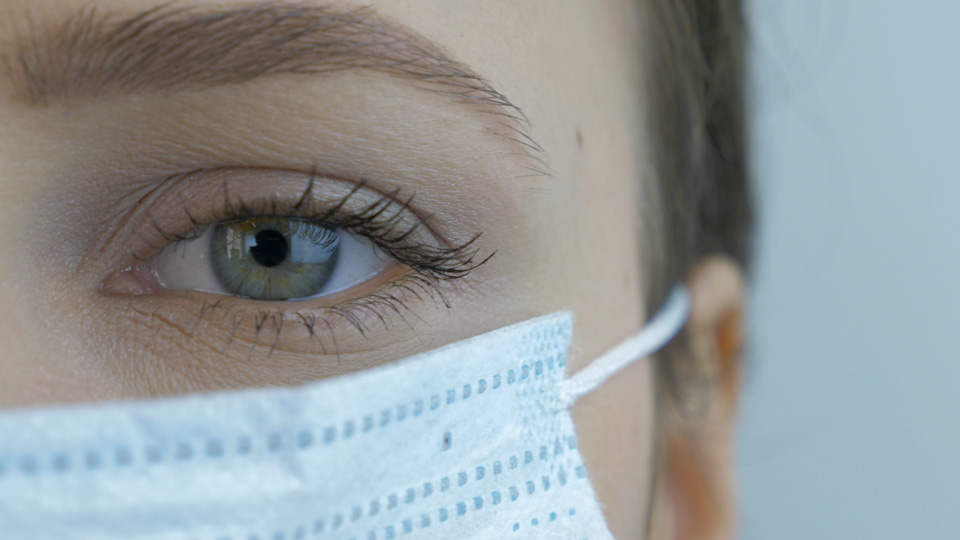20/03/2020
In the current moment of health crisis and social anxiety due to the coronavirus pandemic (Covid-19), it is almost impossible to reduce the use of electronic devices. The possibilities that technology offers us are of immense utility during the confinement at home, but we have an excess of screen time.
Increasing this exposure has side effects on our eyes, most of them minor, although they can limit our day to day. Ophthalmologist doctors warn of the increase in young patients with visual problems typical of the elderly, derived from the excessive screen use such as dry eye, headaches or loss of vision. Therefore, it is important that during our quarantine we follow some recommendations:
- Limit screen time. It is difficult because we want to be connected to the world, telework and follow the news, but it is convenient to reduce the time we spend on electronic devices to an essential minimum. If our work requires the use of a computer, we can do without the mobile and tablet at home. This measure is especially necessary in children and adolescents, as they are developing their sense of vision and may develop more long-term side effects.
- Use the night mode or the blue light filters. Blue radiation is part of the normal spectrum of light, being exposed to it when we do outdoor activities. There is evidence that there may be a direct relationship between exposure to blue light and the early onset of cataracts or age-related macular degeneration (AMD). Although these evidences are not conclusive, since the widespread use of these devices is relatively recent, the use of digital screens increases direct exposure to blue light, so it is advisable to protect yourself.
- Take regular breaks throughout the day, if you work with a computer. In the Anglo-Saxon world they have the rule of "30-30-30": every 30 minutes spent using a screen, you should try to look away at something that is 30 feet away (approximately 10 meters) from you for a total of 30 seconds. To do this, we can go to the bathroom, drink water or look out the window. If we take advantage of these breaks to pick up the phone to respond to a message or browse the social networks, this step loses its effectiveness. With this measure we will avoid eye fatigue at the end of the working day, and with it possible headaches, heaviness in the eyes or blurred vision, among other symptoms.
- Lubricate the eyes frequently. When we look at a screen or read, we blink less. This situation exposes our eyes to dryness, especially in environments with low relative humidity where there is air conditioning, high heating, dust or wind. It is advisable to frequently lubricate the eyes with preservative-free artificial tears (every 1-2 hours or more often if necessary). It is not advisable to wait for signs and symptoms to use eye tears to prevent dryness, since once it appears, it is more difficult for the symptoms to improve. The use of contact lenses can facilitate the appearance of symptoms, since they act as a sponge, absorbing the natural tear of the eye and worsening the situation of dryness. It may also be advisable to use approved humidifiers and with regulatory filters to avoid possible infections.
- Put on the glasses. The continued use and for long periods of digital devices imposes a visual overstrain on our eyes, which can cause eye fatigue and blurred vision or headaches at the end of the day, so it is essential to use the correct corrected visual aid. If we put on the glasses but they do not have the correct graduation we will aggravate the situation, so we must periodically check our graduation. It is also advisable to use glasses instead of contact lenses, as far as possible, especially if our work requires the prolonged use of computers or screens.
- Carry out outdoor activities, if the possibility exists. In addition to the positive effects on our general health, performing outdoor activities reduces the visual effort of our eyes, since in these situations far vision prevails over close. This is especially important in children, since there seems to be a relationship between the performance of activities in closed environments and the appearance or increase of myopia. So, if you are one of the lucky ones who have a garden or terrace, it is a good time to make the most of it, as long as we protect our eyes from the sun well.
- See the ophthalmologist. If any symptom or visual problem occurs, it is very important to make an appointment, since some problems that seem banal can mask other complications.
A yearly or every two years visit with the ophthalmologist is recommended, and go to the emergency department in case of sudden onset visual problems. At the Barraquer Centre, given the current circumstances due to health alert, we keep our ophthalmic emergencies open 24 hours a day and also a telephone line to attend to the doubts of our patients. If you do not know when it is worth coming or calling, we will explain it here.
Doctor Borja Salvador Culla,Ophthalmologist of the Barraquer Ophthalmology Centre
